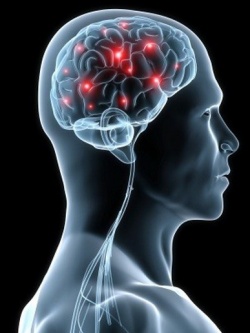Difference between revisions of "Bala pandita Sutta"
m (Text replace - "Category:Samyutta Nikaya" to "{{R}} [http://www.dhammawiki.com/index.php?title=Category:Samyutta_Nikaya dhammawiki.com] Category:Samyutta Nikaya") |
|||
| (5 intermediate revisions by 2 users not shown) | |||
| Line 1: | Line 1: | ||
| − | The Fool & the Wise Person | + | {{DisplayImages|290|1585}} |
| + | {{Centre|{{Big2x|The Fool & the Wise Person}}<br/> | ||
| + | translated from the [[Pali]] by<br/> | ||
| + | [[Thanissaro Bhikkhu]]}}<br/><br/> | ||
| − | + | Dwelling at [[Savatthi]]. "When a fool is obstructed by [[ignorance]] and conjoined with [[craving]], this [[body]] thus results. Now there is both this [[body]] and external name-&-form. Here, in [[dependence]] on this [[duality]], there is [[contact]] at the [[six senses]]. Touched by these, or one or another of them, the fool is [[sensitive]] to [[pleasure]] & [[pain]]. | |
| − | + | "When a [[wise]] [[person]] is obstructed by [[ignorance]] and conjoined with [[craving]], this [[body]] thus results. Now there is both this [[body]] and external name-&-form. Here, in [[dependence]] on this [[duality]], there is [[contact]] at the [[six senses]]. Touched by these, or one or another of them, the [[wise]] [[person]] is [[sensitive]] to [[pleasure]] & [[pain]]. | |
| − | + | "So what difference, what {{Wiki|distinction}}, what distinguishing factor is there between the [[wise]] [[person]] & the fool?" | |
| − | " | + | "For us, [[lord]], the teachings have the [[Blessed One]] as their [[root]], their [[guide]], & their {{Wiki|arbitrator}}. It would be good if the [[Blessed One]] himself would explicate the meaning of this statement. Having heard it from the [[Blessed One]], the [[monks]] will remember it." |
| − | " | + | "In that case, [[monks]], listen & pay close [[attention]]. I will speak." |
| − | " | + | "As you say, [[lord]]," the [[monks]] responded. |
| − | " | + | The [[Blessed One]] said, "The [[ignorance]] with which the fool is obstructed, the [[craving]] with which he is conjoined, through which this [[body]] results: that [[ignorance]] has not been abandoned by the fool; that [[craving]] has not been destroyed. Why is that? The fool has not practiced the {{Wiki|holy}} [[life]] for the right ending of [[stress]]. Therefore, at the break-up of the [[body]], he is headed for a [new] [[body]]. Headed for a [[body]], he is not entirely freed from [[birth]], [[aging]], [[death]], [[sorrow]], [[lamentation]], [[pain]], {{Wiki|distress}}, & {{Wiki|despair}}. I tell you, he is not entirely freed from [[stress]] & [[suffering]]. |
| − | + | "The [[ignorance]] with which the [[wise]] [[person]] is obstructed, the [[craving]] with which he is conjoined, through which this [[body]] results: that [[ignorance]] has been abandoned by the [[wise]] [[person]]; that [[craving]] has been destroyed. Why is that? The [[wise]] [[person]] has practiced the {{Wiki|holy}} [[life]] for the right ending of [[stress]]. Therefore, at the break-up of the [[body]], he is not headed for a [new] [[body]]. Not headed for a [[body]], he is entirely freed from [[birth]], [[aging]], [[death]], [[sorrow]], [[lamentation]], [[pain]], {{Wiki|distress}}, & {{Wiki|despair}}. He is, I tell you, entirely freed from [[stress]] & [[suffering]]." | |
| − | |||
| − | |||
| − | |||
| − | |||
{{R}} | {{R}} | ||
[http://www.dhammawiki.com/index.php?title=Category:Samyutta_Nikaya dhammawiki.com] | [http://www.dhammawiki.com/index.php?title=Category:Samyutta_Nikaya dhammawiki.com] | ||
| − | [[Category: | + | [[Category:Saṃyutta Nikāya]] |
Latest revision as of 11:28, 17 August 2014
The Fool & the Wise Person
translated from the Pali by
Thanissaro Bhikkhu
Dwelling at Savatthi. "When a fool is obstructed by ignorance and conjoined with craving, this body thus results. Now there is both this body and external name-&-form. Here, in dependence on this duality, there is contact at the six senses. Touched by these, or one or another of them, the fool is sensitive to pleasure & pain.
"When a wise person is obstructed by ignorance and conjoined with craving, this body thus results. Now there is both this body and external name-&-form. Here, in dependence on this duality, there is contact at the six senses. Touched by these, or one or another of them, the wise person is sensitive to pleasure & pain.
"So what difference, what distinction, what distinguishing factor is there between the wise person & the fool?"
"For us, lord, the teachings have the Blessed One as their root, their guide, & their arbitrator. It would be good if the Blessed One himself would explicate the meaning of this statement. Having heard it from the Blessed One, the monks will remember it."
"In that case, monks, listen & pay close attention. I will speak."
"As you say, lord," the monks responded.
The Blessed One said, "The ignorance with which the fool is obstructed, the craving with which he is conjoined, through which this body results: that ignorance has not been abandoned by the fool; that craving has not been destroyed. Why is that? The fool has not practiced the holy life for the right ending of stress. Therefore, at the break-up of the body, he is headed for a [new] body. Headed for a body, he is not entirely freed from birth, aging, death, sorrow, lamentation, pain, distress, & despair. I tell you, he is not entirely freed from stress & suffering.
"The ignorance with which the wise person is obstructed, the craving with which he is conjoined, through which this body results: that ignorance has been abandoned by the wise person; that craving has been destroyed. Why is that? The wise person has practiced the holy life for the right ending of stress. Therefore, at the break-up of the body, he is not headed for a [new] body. Not headed for a body, he is entirely freed from birth, aging, death, sorrow, lamentation, pain, distress, & despair. He is, I tell you, entirely freed from stress & suffering."

